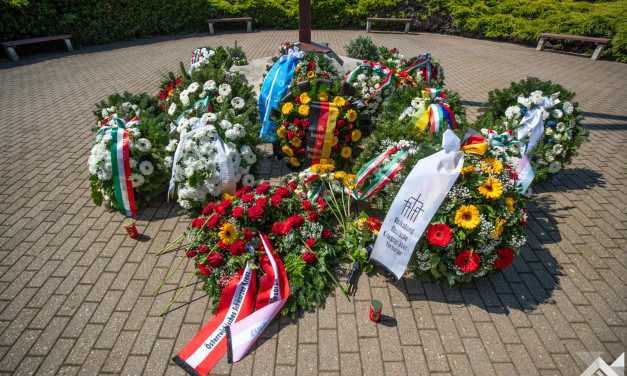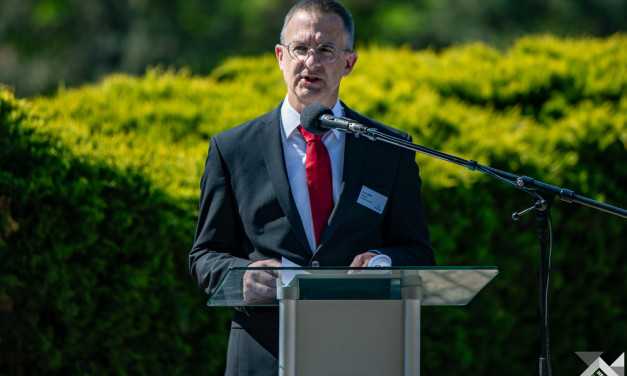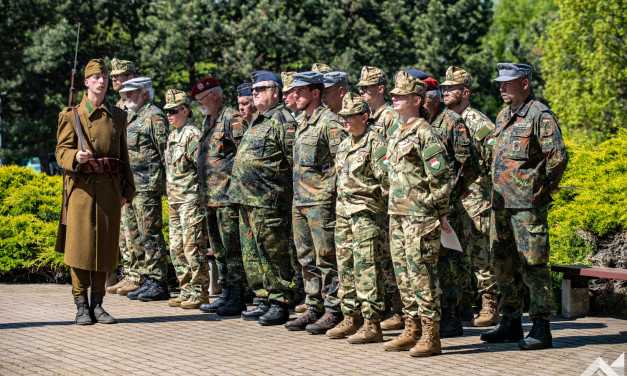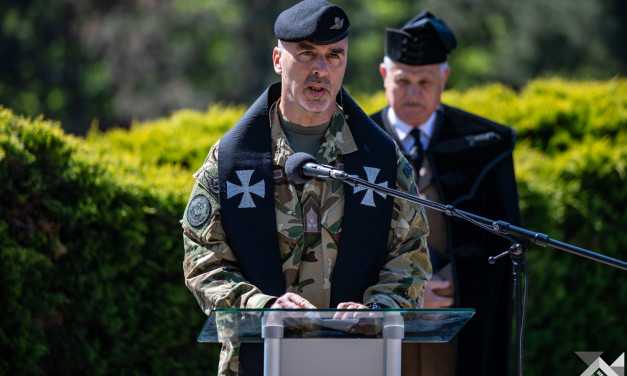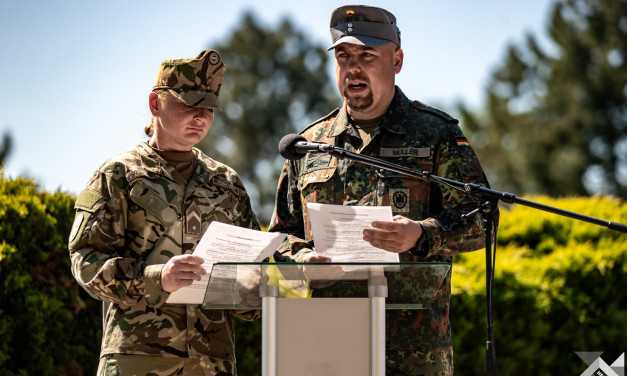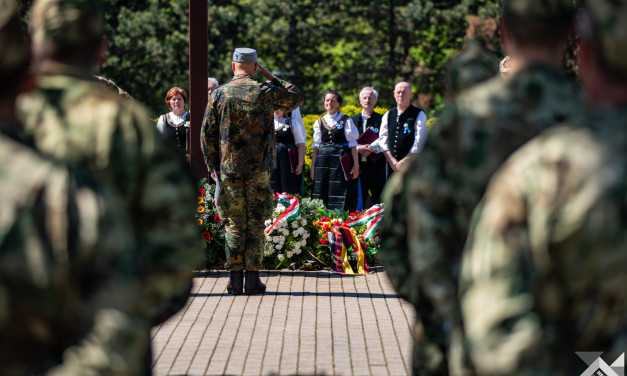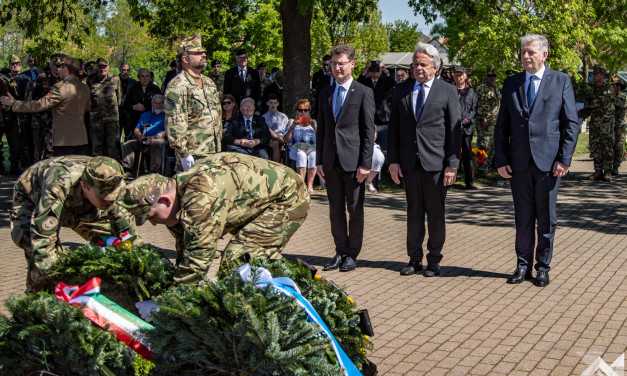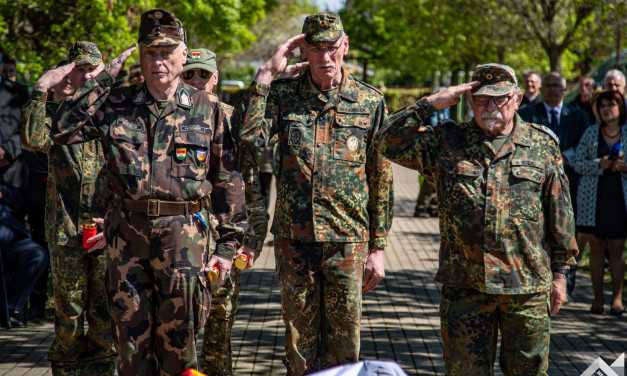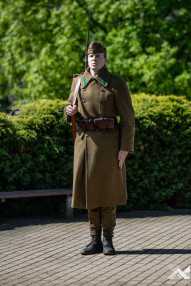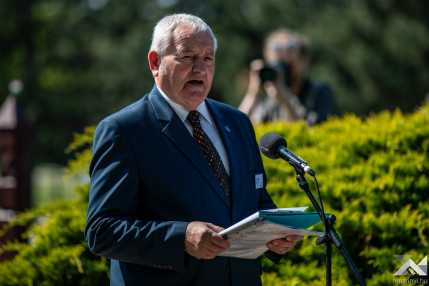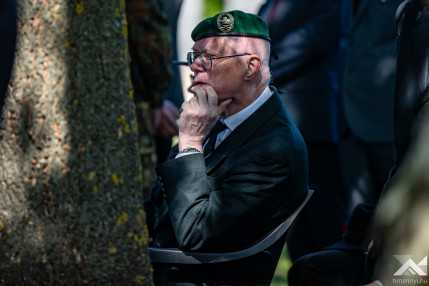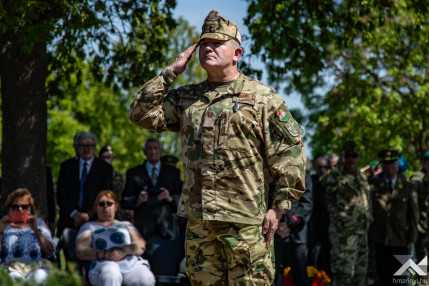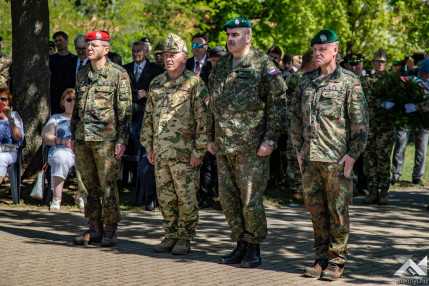Reconciliation Over the Graves
Tamás Vargha: we must keep in mind to preserve peace and freedom
Text: Márton Navarrai Mészáros | Photo: Ákos Pintér | 17:19 April 15, 2024A large-scale commemoration was held to mark the 30th anniversary of signing the German-Hungarian agreement on war grave care in the Szentlélek military cemetery – that had been renovated by German and Hungarian reservists – in Székesfehérvár on Saturday, 13 April.
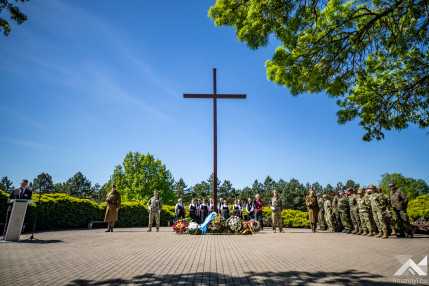
Numerous representatives of European nations participating in World War I and II paid tribute at the Szentlélek Military Cemetery in Székesfehérvár to bow their heads before the resting place of 2,300 World War II German soldiers. “As in many years, we are standing again at the graves and crosses of the Szentlélek Military Cemetery, praying and remembering” – greeted the commemorators Deputy Minister Tamás Vargha, Parliamentary State Secretary of the Ministry of Defence and representative of Székesfehérvár in the National Assembly. In his speech, he also said that the heroes’ cemetery located in the part of the city called Váralja was consecrated thirty years ago. The politician gave thanks for the work of the German War Graves Commission (Volksbund Deutsche Kriegsgräberfürsorge), which carries out military funerary tasks in numerous countries since its establishment in 1919.
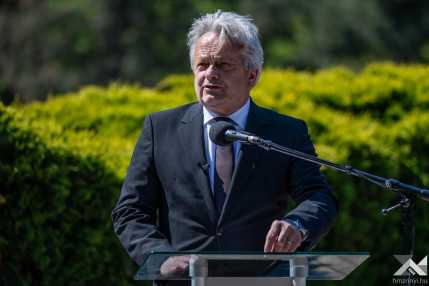
“Meanwhile, István Balsay, former mayor of Székesfehérvár and Péter Poklosi, President of the Hungarian War Grave Care Alliance, also have to be thanked for both of them have done a lot to preserve military graves and take care of them” – he added. He underlined that Péter Poklosi deserved the civil class of the Hungarian Silver Cross of Merit for his “exemplary talent nurturing and education work in recognition of his volunteer town protection and war grave care activity of several decades”. Talking about the victims resting in the military cemetery in Székesfehérvár, Tamás Vargha called attention to the importance of peacekeeping and preserving freedom, shedding light on the fact that “a dead soldier is no longer an enemy, following this eternal principle, soldiers of many nations are resting here in the Szentlélek Cemetery. Today we commemorate together those who turned against each other while following orders but were reconciled in death.”
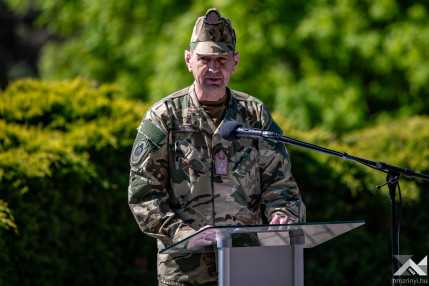
“What has passed not always belongs to the past. It sometimes affects the distant future.” – quoted Lieutenant General Attila Takács, Deputy Chief of HDF General Staff for Territorial Defence from the collection of essays entitled The Sun Does Not Rise in the West of the Transylvanian Hungarian writer, Albert Wass. He said that by preserving the memory of military heroes, it can be guaranteed that future generations also get to know the important memorial places of our history.
The general recalled that the heroes’ cemetery is the venue for bowing head before soldiers killed in action but it also helps future generations face the past. “Thousands of heroes are resting in the soil of Székesfehérvár: sons of nations and folks, who are heroes and victims at once of a barely understandable global war” – this was recalled by Dr. András Cser-Palkovics, mayor of Székesfehérvár, who also mentioned that eleven reservists of the Bundeswehr and eleven local HDF soldiers took care of the military graves of the Szentlélek Military Cemetery in the past two weeks, forming a volunteer group.
The mayor emphasized that each tomb of the German dead heroes and each name written on the memorial boards recalls a fellow human who naturally had bonds, hopes, fears and expectations such as the commemorators. “The most significant or the only acceptable meaning of their life sacrifice is that European nations and folks do not repeat the catastrophic mistakes of the first half of the 20th century” – he underlined.
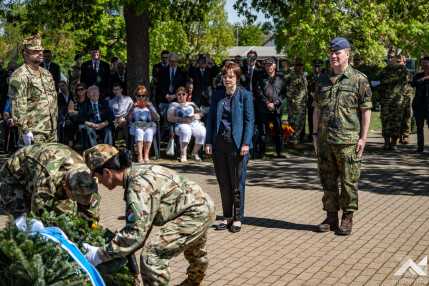
Julia Gross, ambassador of Germany in Budapest highlighted in her speech that the graves of the German victims of World War II convey the message that peace must be preserved and we must act knowing that the present can only be known if we take the lessons learned in the past into consideration. “We must help to save people from violence and terrorism, while building bridges and working for reconciliation” – she underlined.
The German and Hungarian commemoration was ended with the prayers of Brigadier General János Jákob, protestant field bishop and Colonel Tamás Takács, leader of the Chaplain Corps of the HDF Catholic Military Ordinariate, and then with gun salute and wreath laying. At the commemoration, military honours were provided by the soldiers of the HDF 51st Signal and Headquarters Support Brigade and the HDF 6th ‘Sipos Gyula’ Territorial Defence Regiment. The HDF Székesfehérvár garrison band was conducted by Major Tamás Ruff.
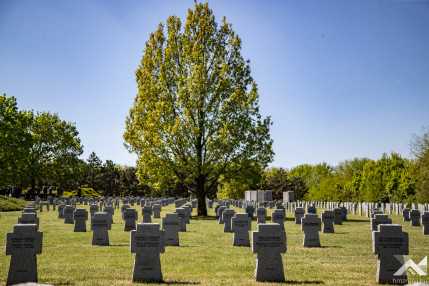
“Before the change of regime, Hungarian and German soldiers who lost their lives in World War II could not have been commemorated due to ideological reasons” – recalled Tamás Vargha in answer to our question. He added that as a resident of Székesfehérvár, it is uplifting for him that the military cemetery has not only been renovated but also the graves there are cared for properly. He said that German and Hungarian soldiers cleaned the main gate, fixed the fence columns, polished headboards and repainted the German granite crosses in the past few weeks.
Mutual reconciliation
The central motif of the work of the German War Graves Commission is reconciliation. Related to this, Imre Kovács, acting Hungarian representative of the German War Graves Commission established in 1919, who had served in the ranks of the Hungarian Defence Forces for forty years told us that Germany and Hungary had signed an agreement on taking care of military graves in Bonn, North Rhine-Westphalia on 16 November 1993. The organization of the anniversary commemoration started already last year, when we examined the condition of the military cemeteries, then we started with overall maintenance tasks – he recalled. According to Kovács, it is really moving that eleven German and eleven Hungarian soldiers worked together to renew the Szentlélek Military Cemetery in the past few weeks, and we should pay heed to it. “We do not have to wait long for the next large-scale action: in September, a two-week cemetery restoration program will begin in Budaörs, with which we also wish to cherish the memory of the soldiers killed in action” – he said.
